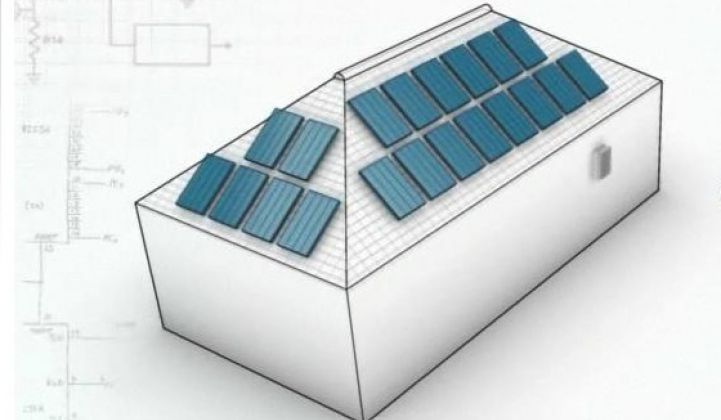Israel's SolarEdge is a provider of distributed solar power harvesting and monitoring equipment, and the firm just announced a $25 million Round C led by Lightspeed Venture Partners along with existing investors Opus Capital, Genesis Partners, Walden International, ORR Partners, Vertex Venture Capital and JP Asia Capital Partners.
Greentech Media did a brief optimizer / microinverter news rundown last week -- there's been a lot of sales activity, funding and production ramp in this new sector of late.
The firm's PV power harvesting architecture includes module-integrated power optimizers with distributed maximum power point tracking (MPPT) and a module-level PV monitoring portal. This type of architecture enables production of up to 25 percent more energy from a PV installation and a faster return on investment, according to the firm.
What we are starting to see in this market, be it DC-to-DC solutions or microinverters, is the emergence of integrated solutions where the power conditioning circuitry is being incorporated into the module's junction box or replacing the junction box entirely.
SolarEdge is one of the earlier market entrants and as such leads in volume and revenue in the DC boost/distributed MPPT sector. I spoke with Lior Handelsman, SolarEdge's VP of Product Strategy and Business Development and founder and he revealed that the firm will ship about 50 megawatts of product this year from a total of 250,000 power units and 12,000 inverters in their first year of production.
That's a pretty significant accomplishment for a startup in what is essentially a new sector in the inverter field. Other vendors in this sector include National Semiconductor, Tigo Energy, Azuray et al. Microinverters perform the full conversion to AC at the panel. Both solutions have their advantages and disadvantages.
The SolarEdge DC-DC power optimizers perform MPPT per individual panel while monitoring performance of each panel and communicating across power lines. The units maintain a fixed DC string voltage, allowing optimal efficiency of the PV inverter, which is custom made to work with power optimizers. As with all of these DC-to-DC solutions, the system provides more power from any given PV system installation, eliminates design constraints, provides panel-level and system-level monitoring, improves safety and can minimize theft, all while reducing the cost of energy.
SolarEdge has a network of distributors and customers throughout Germany, U.S., Canada, Italy, France, Greece, Israel, Australia, Belgium, Czech Republic, South Korea and Japan.
As more vendors enter this field, pricing, reliability and partnering might become more important than technology as these power conditioning circuits become more commoditized. One would imagine that SMA and the other residential inverter companies are paying close attention to this sector.
Greentech Media Research will be publishing the definitive market analysis on the inverter sector in the fourth quarter of this year. Stay tuned.



